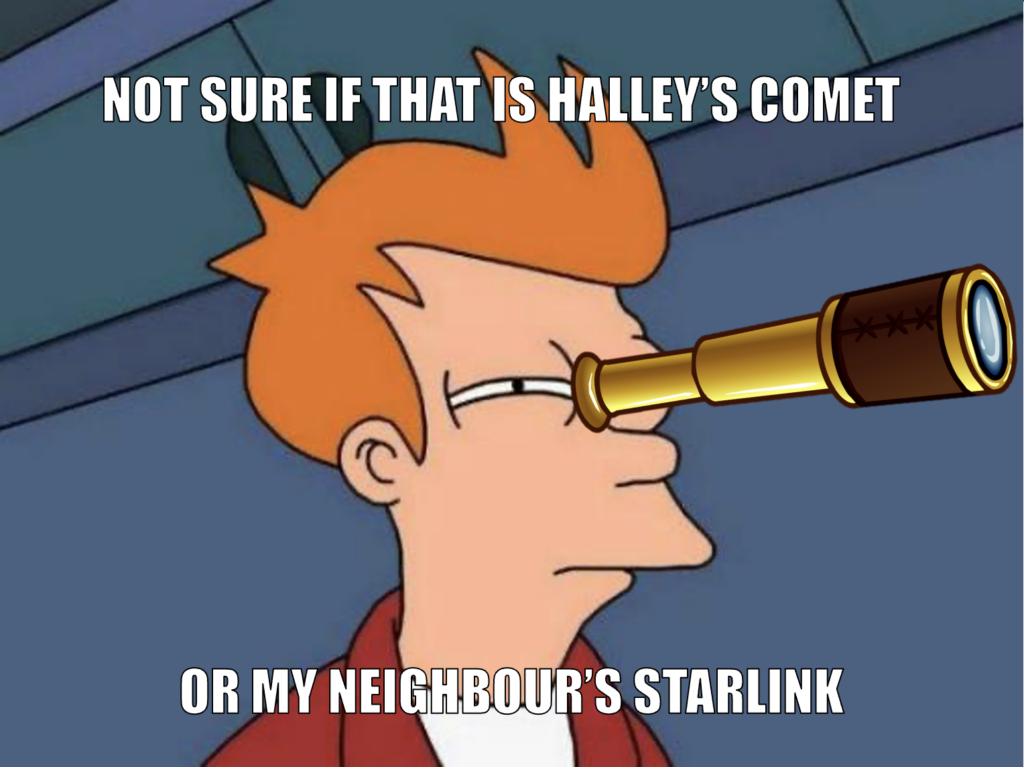In a humanity-first space mission, NASA successfully carried out a planetary defense exercise. The DART team, in collaboration with the JHU APL (yay), successfully collided with Dimorphos on the eve of September 26. Post impact, the spacecraft won’t be in any shape to measure the asteroid’s new orbit and validate the intended calibrations. The mission personnel are relying on ground-based telescopes to measure the aftermath of the impact. These observatories will be the key to enabling similar future ventures. However, given the recent flurry of new satellites, their already significant impact on astronomy, and many more certain to come, does ground-based astronomy still have a future? These satellites are slightingly bright and are often visible to the naked eye in their final orbits. While the new generation of Starlinks is relatively fainter, they are still brighter than the minimum acceptable recommendations put forth by astronomers. Even if every single satellite provider agrees to, and meets the recommendations put forth by astronomers (and only three companies have joined that effort so far), there will soon be as many satellites in the sky as there are naturally occurring objects visible with most telescopes. Meanwhile, over in the radio band, efforts to measure fine details in the cosmic microwave background will suffer, as will observations of molecular gas emissions, organic molecules, reionization, and high-mass star-forming regions. So why not just put everything in space, then? After all, we have a suite of space-based observatories, and they’ve been among the most valuable astronomical facilities of all time. This debate is bound to rage on (check the article for in-depth scenario analysis) as commercial entities stake their claim on space real estate. From a cybersecurity standpoint, which is more secure against as well as prone to external cyber threats: Ground-based or space telescopes?
Original article: https://bigthink.com/starts-with-a-bang/ground-based-astronomy/
